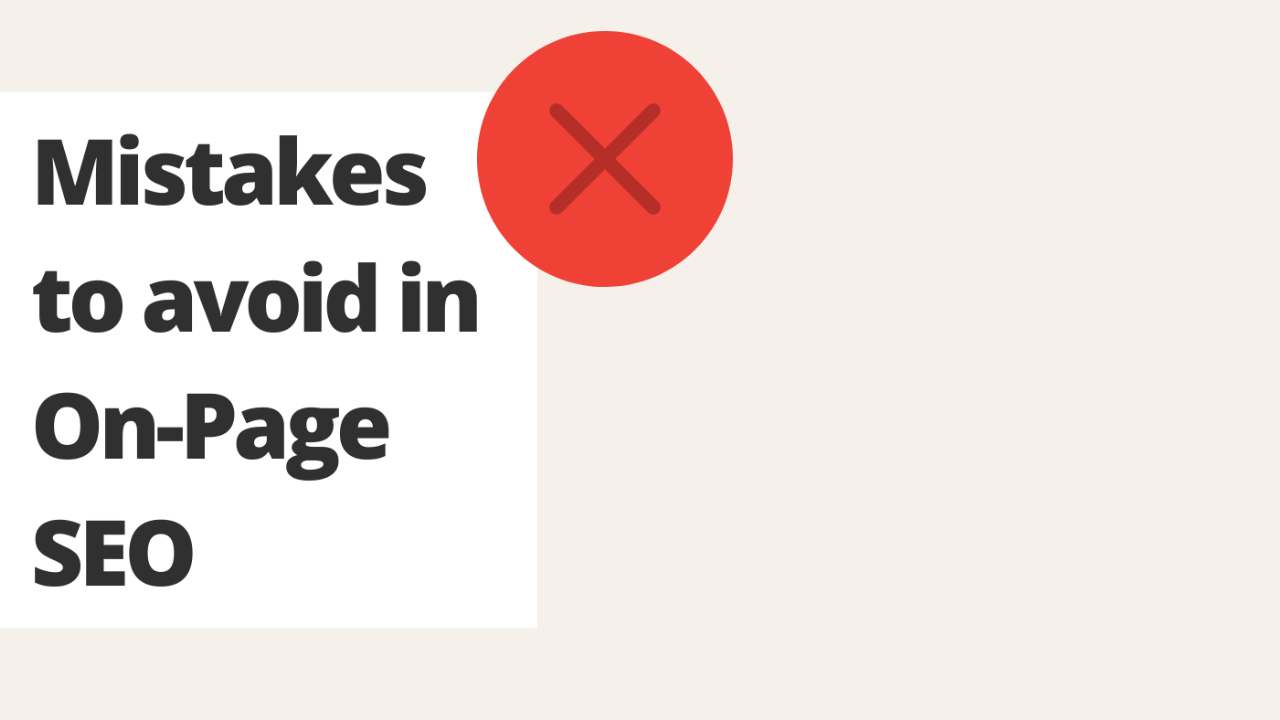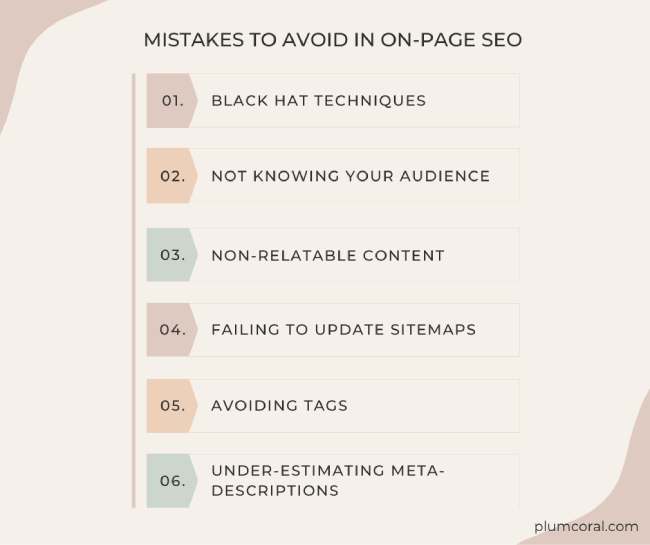
Mistakes to Avoid in On-Page SEO
1. Black hat techniques: Black hat technique is the dark side of SEO which may cause a lot of problems for your website. Many marketers use black hat techniques to show an immediate result of SEO.
These techniques usually involves:
- Cloaking
- Keyword stuffing
- Hidden texts and links
- Manipulating links
- Doorway or Gateway pages
Usage of these techniques leads to receiving penalties from search engines which results in the shutting down of the website.
It is also mentioned in Google’s Webmaster Guidelines that they may entirely remove the site from the Google index. The guidelines also state that if a site is affected by a spam action, it may no longer show up in results on Google.com or on any of Google’s partner sites.
Therefore beware of low-quality SEO services that prefer blackhat techniques.
2. Not knowing your audience: Failing to know your audience is a major mistake every marketer must avoid. Choosing keywords based on the product or service the website provides is what every marketer would do, but what they don’t see is what keyword their audience would use to search for their service or product.
As a marketer keeping your audience’s behavior and needs in mind would help in increased user engagement. Google uses user engagement as an important factor in ranking pages. The wrong audience finds your page or website might leave immediately and as Google notes the user engagement of a website it may downrank your page or website.
3. Non-relatable Content: Content has always been and always will be an important key to SEO. If your content is not related to what you do, misleading or plagiarizing, then your website won’t make it to the top.
Google makes sure that it provides content that is more relevant to what people search for. Content must be of the good quality, fake and old content will easily bring your website rank down. In 2011 Google released a “Panda update” which is basically an algorithm that rules out thin, duplicate, fake and low-quality content.

4. Failing to update sitemaps: Sitemaps helps Google to understand your website’s structure so that it can crawl through it properly.
When there has been an update or change in the website it is always better if you update your sitemaps immediately to avoid confusing search engine bots as they might find themselves crawling through broken sections. This will result in downranking of your website in SERP.
5. Avoiding tags: Image tags and title tags play a major role in SEO. Search engine bots read the tags and descriptions which you have provided for your image to examine the image and rank your website according to it.
Many webmasters ignore these tags which might result in loss of organic traffic coming from image results.
6. Under-estimating Meta-descriptions: Meta-descriptions help with the indexation of web pages by search engines. Meta descriptions must be well optimized just like your content.
Proper usage of keywords in meta-descriptions is very important to match what the user is trying to search on your webpage. Even though meta-descriptions are a basic feature of SEO many pages usually miss it. Running a SEO audit would help you in identifying the pages that are lacking meta-descriptions and other errors on your website.







